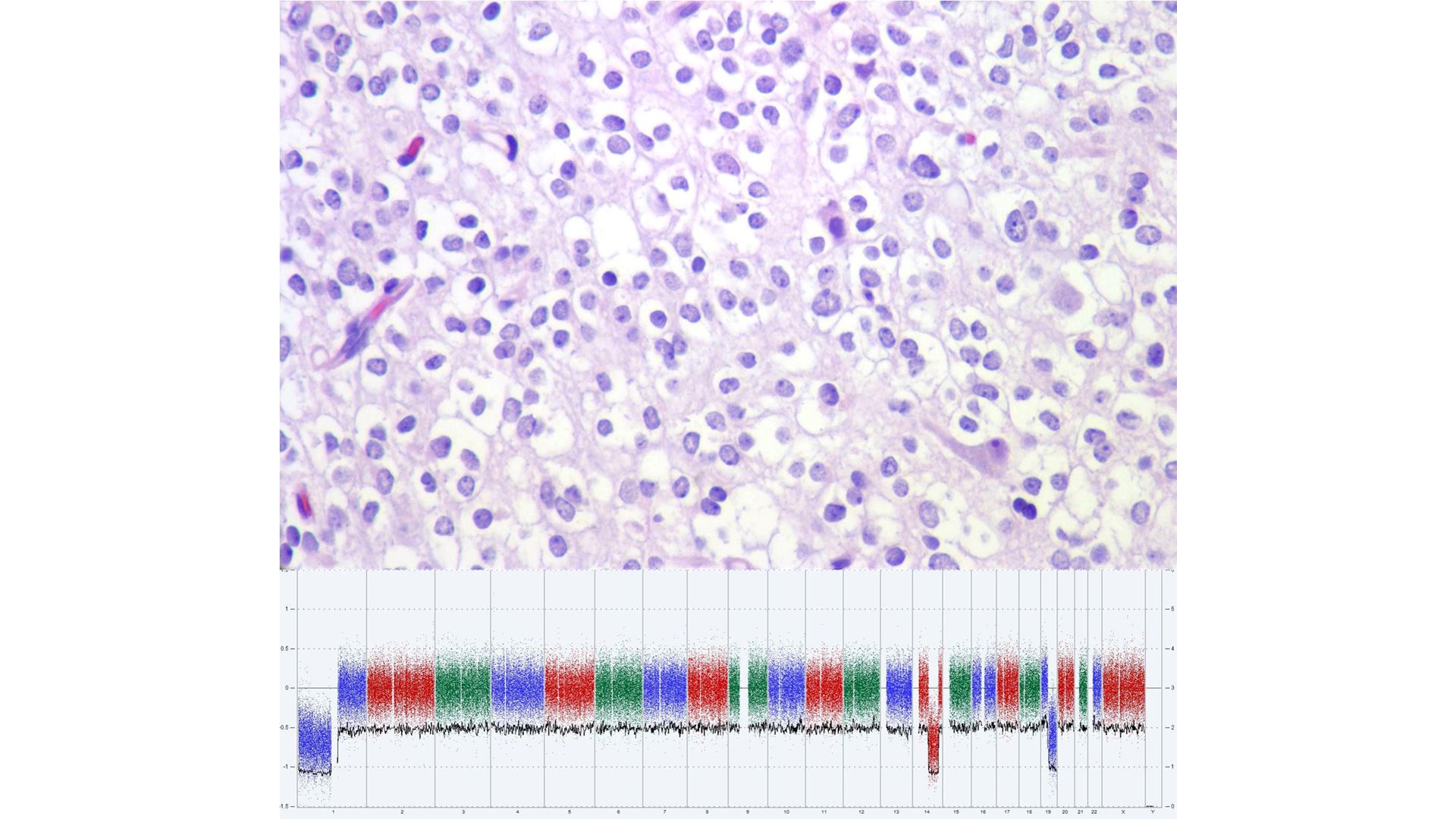NORTHFIELD, Ill., — A new evidence-based guideline published today by the College of American Pathologists (CAP) can help improve how pediatric and adult patients with the most common type of primary brain tumor, diffuse glioma, are diagnosed and managed.
“Molecular Biomarker Testing for the Diagnosis of Diffuse Gliomas,” published in an early online edition of Archives of Pathology & Laboratory Medicine, sets forth 13 recommendations to guide biomarker testing of these tumors. Diffuse gliomas affect approximately 15,000 people in the US each year and present with widely variable clinical courses and treatment approaches.
“Our understanding of diffuse gliomas as discrete genetic and clinical entities has advanced markedly in the last decade, making molecular testing an established component of their integrated diagnosis,” explains guideline chair Daniel Brat, MD, PhD, FCAP. “This allows for a more refined definition of disease and better prediction of both prognosis and therapeutic response.”
Traditionally, diffuse gliomas have been classified by their microscopic properties as astrocytomas, oligodendrogliomas, or oligoastrocytomas ranging from World Health Organization (WHO) grades 2 to 4. And while there is some standardization around molecular-level definitions and classifications, the molecular profiles and genetic alterations of diffuse gliomas can vary widely, as can the testing methods that pathologists use to assess them.
With the new CAP guideline, clinical teams now have evidence-based guidance for diffuse glioma molecular testing more broadly, which can help improve the diagnosis, prognosis, and therapeutic care for patients.
Working across the clinical spectrum, three societies collaborated with the CAP on the guideline: the Society for Neuro-Oncology, the American Association of Neuropathologists, and the Association for Molecular Pathology.
Most notable, the guideline recommendations:
- Call for IDH mutation testing for all diffuse gliomas in the appropriate clinical and radiologic setting.
- Address the use of tests that assess the status of several genetic alterations that allow pathologists to classify diffuse gliomas according to the WHO classification schema.
- Offers guidance specific to biomarker testing in pediatric patients with diffuse gliomas.
Under Dr. Brat’s leadership, an expert panel screened more than 4,000 titles and abstracts, reviewed 703 manuscripts, and extracted data from 188 studies to develop the recommendations using the Grading of Recommendations Assessment, Development and Evaluation (GRADE) approach—a common, transparent method for grading quality (or certainty) of evidence and strength of recommendations.
Consistent with the CAP’s guideline process and principles, which follow the National Academy of Medicine's standards, the guideline will be reviewed in four years, or earlier if evidence becomes available that could potentially alter the original guideline recommendations.
About the College of American Pathologists
As the world's largest organization of board-certified pathologists and leading provider of laboratory accreditation and proficiency testing programs, the College of American Pathologists (CAP) serves patients, pathologists, and the public by fostering and advocating excellence in the practice of pathology and laboratory medicine worldwide. For more information, READ THE CAP ANNUAL REPORT at CAP.ORG.

